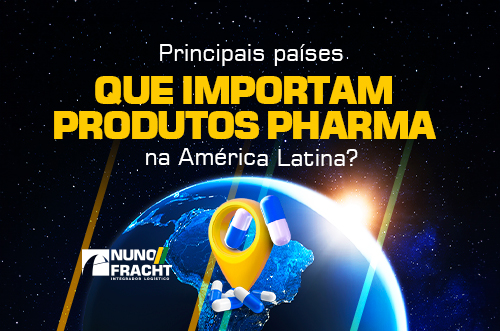
At the epicenter of the pharmaceutical revolution, Brazil and Latin America stand out on the global map, driven by robust growth in recent years. This article investigates the advances that are redefining the sector, expectations for the future and the challenges on the horizon.
Impressive figures
Brazil ranks among the world’s top ten economies and the top eight pharmaceutical markets. In a meteoric rise, over the past five years, the sector’s revenue has jumped by 62%, from R$90.5 billion to R$146.7 billion, according to Interfarma data.
Such growth is anchored by the institutional market (i.e. governments, clinics and hospitals), which saw an increase of 74.1% in the period, especially in the antineoplastic and immunosuppressant segments.
A wave of growth
The fast pace is not exclusive to Brazil, though. According to InFigures: Latin America 2022 report by PharmaBoardroom, Latin America has a total market of US$ 98 billion and promises to have the fastest growth worldwide over the coming years.
Estimates suggest that the pharmaceutical sector will experience an annual expansion of 10.1% between 2021 and 2025, surpassing the rates of developed and developing regions – such as North America (3.1%), Europe (3.9%), Africa (6.5%), Russia (8.9%) and the Indian subcontinent (9.4%).
Market dynamics and consumption
Despite its high population density, Brazil ranks 32nd in per capita spending on medicines, suggesting an untapped market potential.
In 2022, Brazilians spent around R$106 billion in pharmacies. Per person, the average annual consumption was US$ 123. The United States are leading the ranking: each American spends an average of US$ 1,229 on medicines per year. Other mature markets include Germany (US$ 884), Canada (US$ 879), France (US$ 671), Italy (US$ 624), the United Kingdom (US$ 527) and Spain (US$ 525).
Imports and external influences
With 16% of the total, Germany tops the list of pharmaceutical exports to Brazil, followed by the United States, Switzerland, China, Belgium and Italy. This data highlights a peculiarity: while other industries are generally dominated by China, in the pharmaceutical sector, the United States and European countries prevail.
The Covid-19 pandemic has also underscored Brazil’s dependence on imports of pharmaceutical supplies. This is, in fact, a national security issue, especially in the face of global crises that may affect the availability of essential medicines.
Innovation and technology as engines of growth drivers
The year 2022 was marked by record investments in Research and Development (R&D), which reached US$138 billion globally.
Brazil stands out in this scenario for its commitment to technological progress, despite bureaucratic obstacles. At the center of this transformation are supercomputing, biotechnology, nanotechnology and the advances of Industry 4.0 (including Big Data, 3D printing and machine learning), which are promoting a revolution in operational efficiency and product development.
Challenges and future prospects
The ability to adapt and respond to consumer needs by launching new products and solutions is a challenge for companies in the sector. Moreover, the relationship between buyers and sellers is changing, requiring a more collaborative approach to negotiations.
The pandemic has led to important changes, such as the decentralization of drug production. The industry is moving towards a continuous manufacturing flow, which is more automated, sustainable and suitable for smaller-scale production.
Finally
If you, as an entrepreneur, wish to expand your activities into the field of importing or exporting pharmaceutical products, we at Nuno//Fracht are ready to help you.
We have in-depth technical knowledge of the critical transportation and storage requirements of the most diverse types of cargo, ranging from medicines that require strict temperature control to high-tech equipment, destined for large hospitals.
This expertise translates into efficiency, safety and compliance, key elements for success in this market.
Contact us and request your quote!

